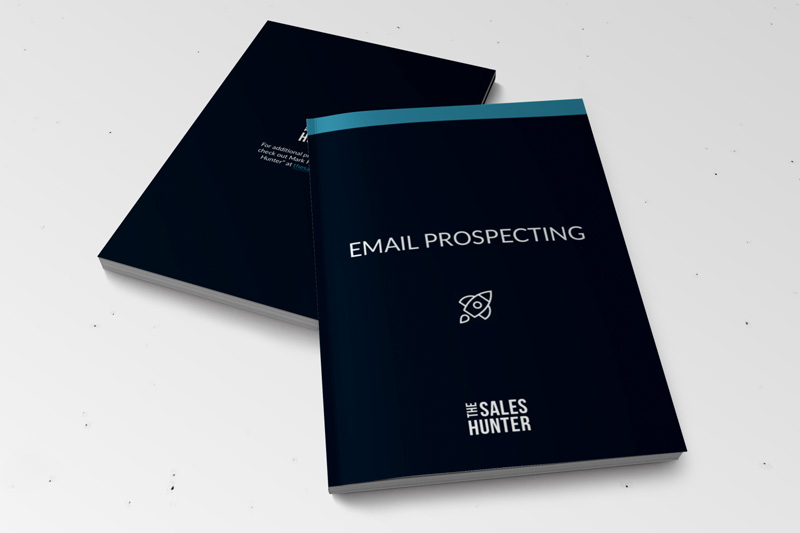 Do you know what you’ll be doing less of if you become better at prospecting?
Do you know what you’ll be doing less of if you become better at prospecting?
Negotiating.
You’ll be doing a lot less negotiating. I imagine that is music to your ears, because who of us really likes negotiating?
Most salespeople I meet really don’t care for negotiating or prospecting. BUT, what I find interesting is how one impacts the other. Challenge is too many salespeople don’t see the correlation.
They end up doing too little prospecting and too much negotiating, thus negatively impacting profits.
Negotiating a sale happens when the customer does not see the full value of what you’re selling. Stop and ask yourself the question, “Wouldn’t they be willing to pay full price if they understood clearly how what I’m selling is going to help them?”
Yes, uncovering the the customer’s needs is something done during the sales process. If, however, you’re trying to sell to people who simply aren’t going to make good customers, then you’re pushing water uphill.
The prospecting process is all about getting the match between customer and salesperson correct.
This is why I say if you can prospect better, you’ll spend less time negotiating. I’m not saying this is a silver bullet, but if you could reduce the number of times you have to negotiate by half, I think you would be interested.
It starts by first targeting your profile customer, but even more than that, it’s about gaining a level of confidence between the two of you.
If there is no confidence, then why should anyone expect a sale to be closed without having to negotiate?
Successful prospecting results in a level of confidence which results in the customer being willing to share with you, the salesperson, their needs and how they determine value.
It’s the lack of confidence between the two parties that results in false expecations.
Here are key questions you have to ask yourself:
Are the people you’re prospecting capable of buying from you?
Are they willing to share key information with you?
Are you able to get them to express to you how they value money and what their timeline is for making a decision?
The sooner you can get answers to these questions, the faster you can make a decision if the prospect is really a customer.
Uncovering as much of this information early on in the process increases the probablility of not having to negotiate to close the sale.
The reason is simple: You will know what the customer is truly wants, and as a result, you will be better able to present an offer that warrants full price and no negotiating.
Copyright 2014, Mark Hunter “The Sales Hunter.” Sales Motivation Blog. Mark Hunter is the author of High-Profit Selling: Win the Sale Without Compromising on Price.













